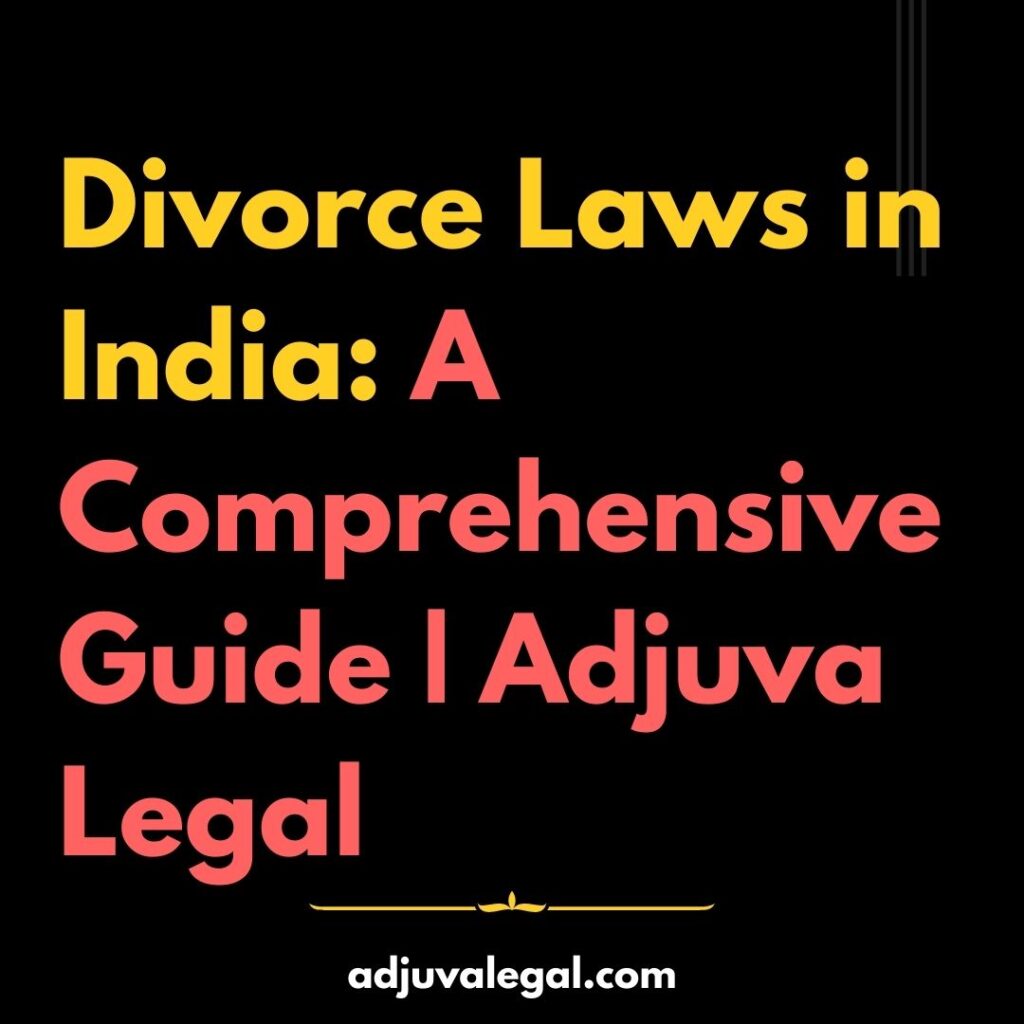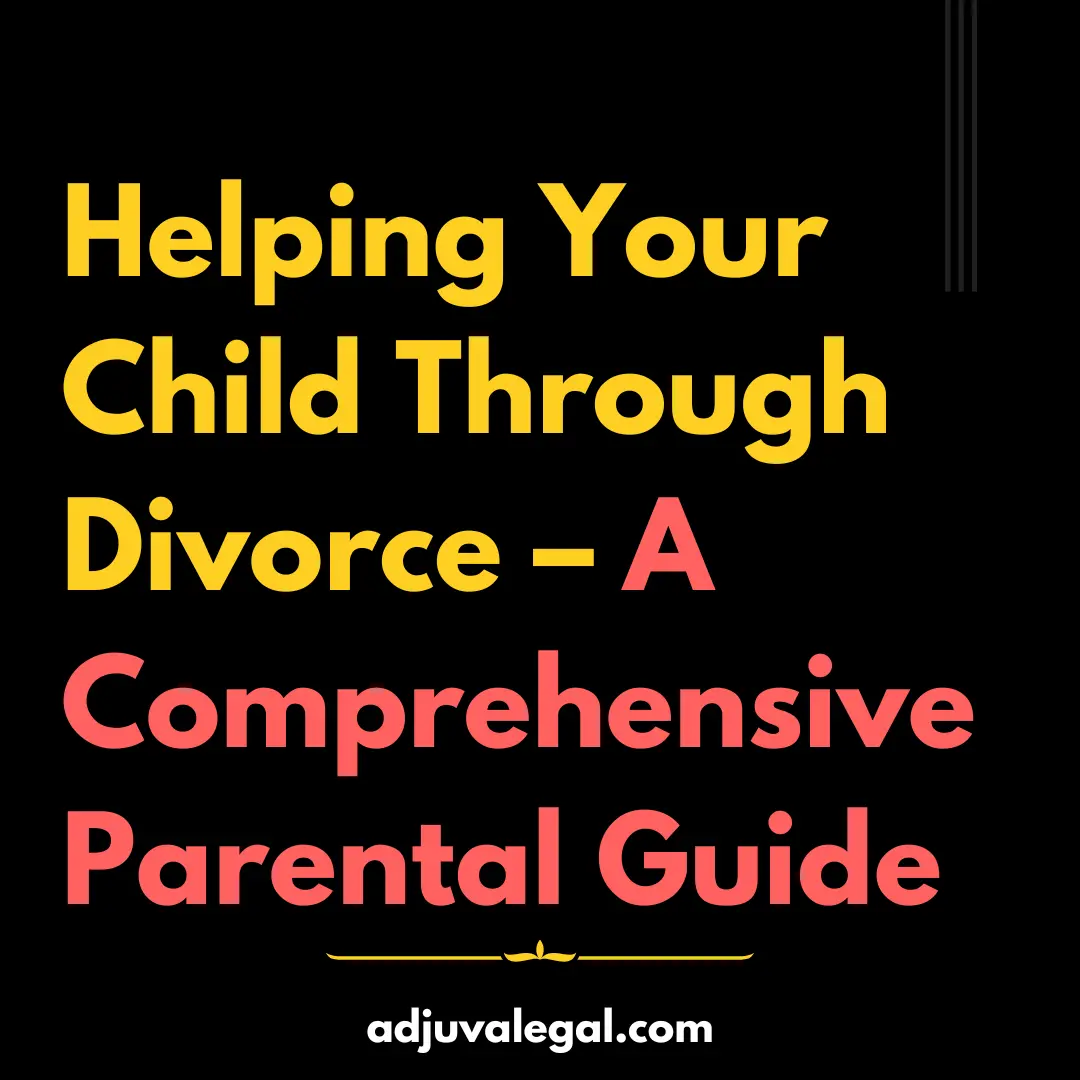Understanding Divorce Laws in India: A Quick Overview
What’s up? So, you’re curious about divorce laws in India, or maybe you’re right in the thick of it.
You likely thought you would have to deal with many confusing legal terms and paperwork, right?
Well, let’s skip the headache. I’m here to walk you through it with some plain speech.
Welcome to your no-fuss guide from us at Adjuva Legal, where we keep things as chill as possible.
Common Grounds for Divorce in India
Depending on your background, the path to divorce in India can look different:
Hindus, Buddhists, Sikhs, and Jains: You’re dealing with the Hindu Marriage Act.
Muslims: You’ve got your own personal laws and an act from 1939.
Christians: There’s a vintage 1869 act for you.
If you’re married without religious ties: The Special Marriage Act is your go-to.
Common Grounds for Divorce Whether it’s cheating, constant bickering, or just drifting apart, it all starts with someone filing a petition.
Sometimes, there’s a bit of back and forth to try and fix things, but if that fails, it’s time to get down to the legal stuff.
The Divorce Roadmap: What to Expect
Divorce isn’t just paperwork; it’s a whole journey. Here’s what to expect:
Filing a Petition: This is like declaring, “I need a change.”
Court Time: You share your stories, and a judge might try to mediate.
Final Decisions: If you can’t make it, the court decides on the nitty-gritty like money and kids.
On the Fence?
“Getting good advice is key.” The legal maze can be daunting, and that’s where a good lawyer comes in. We at Adjuva Legal are here to guide you through smoothly.
Mutual Consent Divorce: A Simpler Approach
Mutual consent is the smoothest path if you and your partner agree on splitting. Here’s what that looks like:
You both agree and file together.
There’s a six-month cooling-off period, but sometimes you can skip it. Only sometimes.
You sort out how to split assets and move on.
“Not all breakups need to be messy.” Mutual consent keeps it straightforward and drama-free.
Beyond the Legal Proceedings: Emotional Considerations
Remember, a divorce is more than just signing papers—it’s a big emotional shift.
Don’t isolate yourself; lean on friends, consider therapy, or find a support group.
Need a friendly ear? Adjuva Legal is just a click away.
Need a friendly ear? Adjuva Legal is just a click away.
For down-to-earth, supportive guidance on India’s divorce laws, Adjuva Legal is just a consultation away. Schedule a talk and let’s figure this out togethere of user’s websites.
FAQs of Divorce Laws in India
Most frequent questions and answers
Under the Hindu Marriage Act, recognized grounds for divorce include cruelty, desertion for a continuous period of two years, conversion to another religion, unsoundness of mind, leprosy, venereal disease, renunciation of the world, and no resumption of cohabitation after a decree of judicial separation.
Divorce laws in India vary by religion: Hindus, Buddhists, Sikhs, and Jains are governed by the Hindu Marriage Act; Muslims by personal laws and the Dissolution of Muslim Marriages Act 1939; Christians by the Indian Divorce Act 1869; and those married under the Special Marriage Act (regardless of religion) follow its provisions. The grounds and procedures differ, reflecting religious doctrines and cultural practices.
Mutual consent divorce is a streamlined process where both spouses agree to dissolve the marriage amicably. It involves filing a joint petition, appearing before a court, and respecting a six-month cooling-off period (which can be waived under certain circumstances) to finalize the divorce. This process is generally faster and less contentious.
While court intervention is necessary for the final decree, some aspects, like mediation and negotiation of terms, can occur outside the courtroom. However, mutual consent divorce also requires court appearances for filing and final statements.
Child custody is determined based on the child’s best interests, considering factors such as the parent’s financial stability, emotional bond with the child, and overall ability to provide a safe and nurturing environment. Custody can be sole, joint, or legal, with specific visitation rights.
The timeline varies widely: a mutual consent divorce typically takes about 6 to 18 months, considering the mandatory cooling-off period, while contested divorces can take several years, depending on the complexity of the case and court backlog.
NRI divorces may involve complexities such as jurisdiction issues—where the marriage took place versus where the divorce is filed—enforcement of court orders internationally, and specific provisions regarding property and alimony across different countries.








